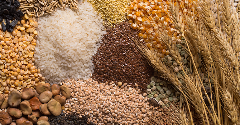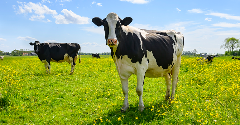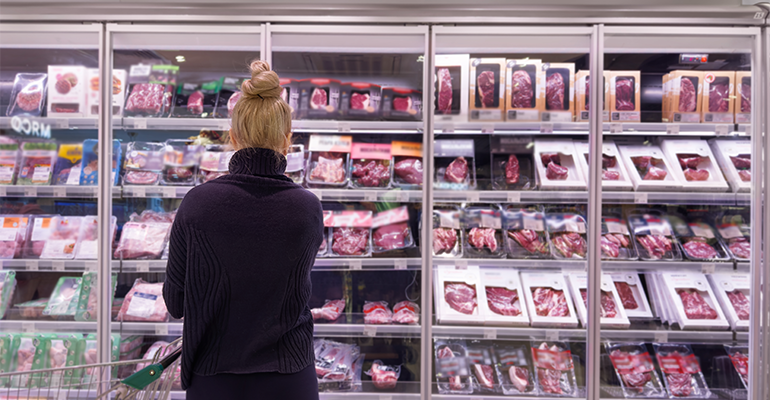News
Aleph Farms calls on USDA to promote clean meat
19 Jun 2018Aleph Farms is calling on the US Department of Agriculture (USDA) to promote clean meat for its compelling safety advantages, such as being antibiotic free and pathogen free.

Aleph Farms is calling on the US Department of Agriculture (USDA) to promote clean meat for its compelling safety advantages, such as being antibiotic free and pathogen free. This request comes in response to the US Cattlemen’s Association’s (USCA) petition to the USDA to restrict the terms “beef” and “meat” only to slaughtered animal-based products.
Last year, the Food and Drug Administration banned the use of antibiotics solely for animal-growth promotion. Despite the FDA’s restrictions, Aleph Farms notes that 70 to 80% of US antibiotic sales go to livestock, according to the New York Times. This fact raises public health concerns about increased antibiotic resistance, which causes about 23,000 American deaths a year and $34 billion in financial losses annually, according to the Centers for Disease Control and Prevention (CDC).The CDC also estimates that every year, more than 400,000 United States residents become ill with infections caused by antibiotic-resistant food-borne bacteria. Ironically, antibiotics may not prevent pathogens in meat. For example, a 2014 Consumer Reports study found illness-causing bacteria on 97% of inspected raw chicken breasts purchased at retail stores nationwide.“Aleph Farms grows antibiotic-free clean meat outside of the animal in a safe, controlled environment, preventing the development of bacteria,” said Dr. Neta Lavon, Vice President of R&D at Aleph Farms. “Aleph Farms views its advanced 3D cellular agriculture technology as the next step in agricultural practices.”“A key USDA role is to minimize consumer exposure to unsafe agricultural products, including meat,” said Didier Toubia, Co-Founder and CEO of Aleph Farms. “In recent years, the USDA has implemented new proactive policies to reduce pathogens in animal products. The innovation of clean meat is a natural development in line with USDA policies to reduce exposure to pathogens. Most meat is contaminated during the slaughter process, and clean meat eliminates this risk.”USCA members may perceive clean meat as a threat to their businesses. The cattlemen’s petition claimed that clean meat products “are likely to become more prevalent in the marketplace and take away market share from farmers.” Given the forecasted protein shortage worldwide, Aleph Farms says it trusts that there is plenty of room in the market for all.“We understand this is a sensitive issue for the cattlemen, but at Aleph Farms, we see the introduction of clean meat as an industry-wide opportunity, rather than a threat,” said Toubia. “We are not looking to replace farmed meat, but rather to offer an additional choice to the consumer. Aleph Farms has tremendous respect for hardworking cattle farmers; my wife is a farmer, too. The farmers’ role is to feed the world, so they should be willing to embrace new food production technologies.”Related news

Sustainable grains present a healthy growth opportunity
3 Oct 2024
Food insights provider SPINS unveils the latest trends in the sustainable grains field, exploring how seven leading grains show healthy growth despite challenges in the global value chain.
Read more
Will we see a wave of NPD that focuses on insulin management?
1 Oct 2024
As a new study finds protein and fats can help manage insulin, food manufacturers are building on emerging GLP-1 platforms and supporting nutritional guidance.
Read more
New environmental food scoring standards emerge
30 Sep 2024
EIT Food and Foundation Earth collaborate to launch environmental food scoring for products entering the global supply chain.
Read more
Africa progresses with food transformation strategy
19 Sep 2024
Large-scale efforts are underway to drastically change the African food sector with a $61 billion (€55 bn) set of proposed transformation plans to be implemented across forty countries. Yet there are concerns that this initiative severely jeopardises s...
Read more
European Commission releases new supply chain recommendations
6 Sep 2024
The European Union’s (EU) legislative arm publishes its latest guidance on protecting the market’s food supply chain against current and future crises.
Read more
Tesco trials methane mitigation supplement for dairy cattle
5 Sep 2024
Tesco is trialing a methane-reducing feed supplement for one of its key UK dairy farms, sustainable UK milk producer Grosvenor Farms.
Read more
European consumers want more freedom to choose biotech-based food
3 Sep 2024
Survey findings point to growing levels of interest in cultivated meat as European consumers say they want the freedom to choose the lab-based products.
Read more
Will ‘foie gras’ become the EU’s first approved cultivated meat?
20 Aug 2024
French startup Gourmey has submitted its cultivated foie gras for approval in the European Union (EU), signalling the first application of its kind in the region.
Read more
Europe gravitates to African spices
19 Aug 2024
Shipping delays, limited production output and climate change impact Europe’s spice supply, creating opportunities for African brands to enter the captive market.
Read more
Paris Olympics: Food and beverage brands champion health, fun, and sustainability
5 Aug 2024
Food and beverage brands are aligning with the Paris Olympics 2024 Food Vision, which emphasises sustainability, local sourcing, and plant-based diets.
Read more